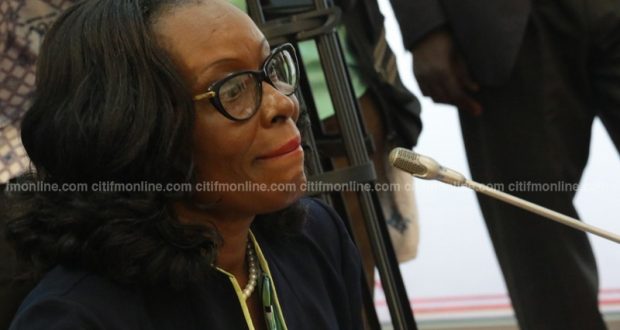The above statement emanates from the cardinal principle of law that an act does not constitute a crime if the statute books have not written that THAT PARTICULAR ACT is a crime AND the corresponding punishment clearly stated. This is why the highest law of the land, the 1992 Constitution, has stated in Article 19(11) that: “No person shall be convicted of a criminal offence unless the offence is defined and the penalty for it is prescribed in a written law.”
For instance, the crime of murder is defined and the penalty for it also prescribed in Sections 47 and 46 respectively of the Criminal Offences Act, 1960 (Act 29). The aforementioned Section 47 provides as follows: “A person who intentionally causes the death of another person by an unlawful harm commits murder, unless the murder is reduced to manslaughter by reason of an extreme provocation, or any other matter of partial excuse, as is mentioned in section 52.” Thus the crime is clearly defined; Section 46 also provides as follows: “A person who commits murder is liable to suffer death.” Thus, the penalty for it is prescribed in a written law.
Treason is defined in the 1992 Constitution as follows: “Treason shall consist only-
(a) in levying war against Ghana or assisting any state or person or inciting or conspiring with any person to levy war against Ghana; or
(b) in attempting by force of arms or other violent means to overthrow the organs of government established by or under this Constitution; or
(c) in taking part or being concerned in or inciting or conspiring with any person to make or take part or be concerned in, any such attempt.” (See Article 19(17))
The act of Treason has eluded both the legislative and executive arms of successive Governments over the years because even though it has been very well defined it does not have any punishment at all prescribed for it. The closest one may come to finding a prescribed punishment in our laws is Section 182 of the aforementioned Act 29, and this is the provision many resort as the punishment for treason. It says: “A person commits a treason felony and is punishable as for a first degree felony who:
(a) prepares or endeavours to procure by unlawful means an alteration of the law or of the
policies of the Government, or
(b) prepares or endeavours to carry out by unlawful means an enterprise which usurps the
executive powers of the Republic in a matter of both a public and a general nature. “
Let me at this point state that treason felony and treason are not the same offences. Apart from the difference in definitions as can be seen in our local laws, many other jurisdictions, including where we clearly copied our Criminal Offences Act from, have completely separate enactment for treason felony and treason. Thus, there has since been the Treason Act and Treason Felony Act 1848 of the United Kingdom. The difference between treason and treason felony is acknowledged at common law. In the case of R v. Gallagher (1883) Cox C. C., three members of the Fenian Brotherhood were found guilty of the treason felony of levying war against the Queen; their intention was to destroy public buildings by nitro-glycerine and other explosions in order to produce “the freedom of Ireland by force alone”. According to the Court although they were only charged with treason felony it was clear that they could have rather been charged with the offence treason. This exemplifies the difference between treason and treason felony.
So we can conclude that Section 182 of Act 29 does not at all prescribe a punishment or classify treason as a first degree felony; rather it is clearly speaking of and only of treason felony. Though Section 180 of the same Act is titled Treason, the provision itself only speaks about High Treason which is also very different from Treason. It provides inter alia that: “A person who commits high treason is liable to suffer death.” High Treason has also been defined in Article 3(3) as follows: “Any person who –
(a) by himself or in concert with others by any violent or other unlawful means, suspends or overthrows or abrogates this Constitution or any part of it, or attempts to do any such act; or
(b) aids and abets in any manner any person referred to in paragraph (a) of this clause; commits the offence of high treason and shall, upon conviction, be sentenced to suffer death.”
Now that we know that there is no crime without its punishment prescribed in a written law, and we also know the difference between Treason, Treason Felony, and High Treason, we can safely conclude by saying that Treason itself may not be a crime in Ghana yet. I humbly ask the learned Attorney General and Parliament to take a look at this lacuna that for decades has been left in our law books.
And for the avoidance of doubt Article 19(2) of the Constitution relates to crime in general and should be read as a whole, paying keen cognisance to Clause 2(i) of the same Article.





